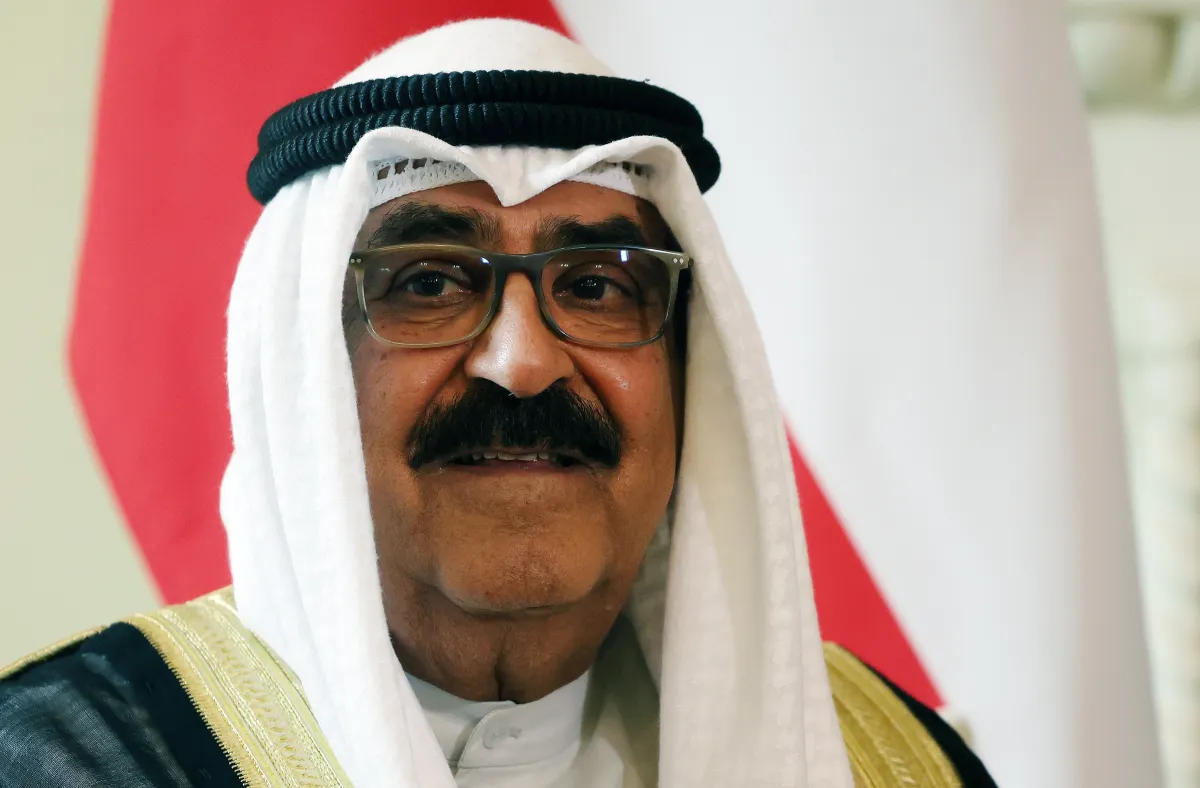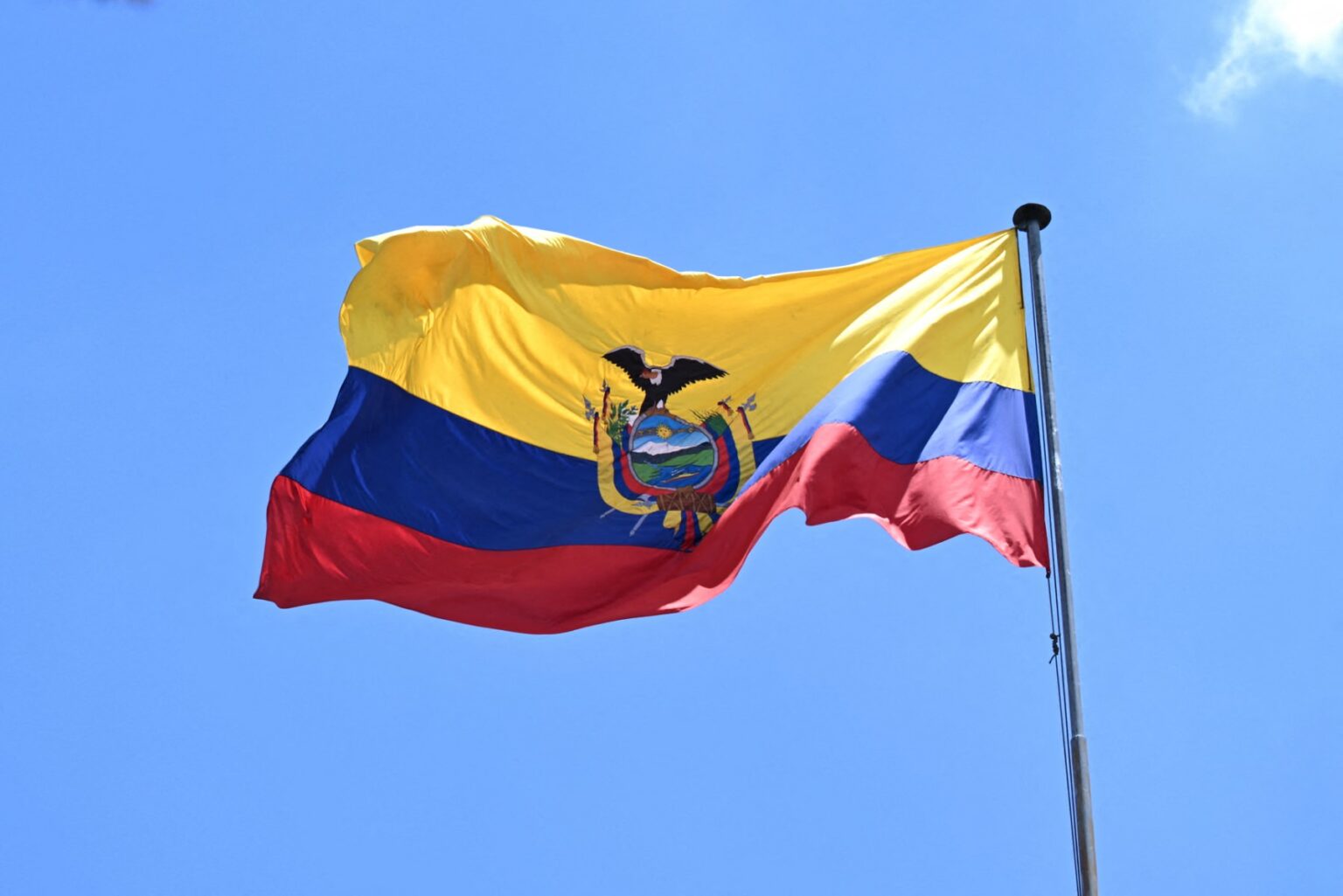International
The Emir of Kuwait dissolves Parliament and suspends some clauses of the Constitution

The Emir of Kuwait, Mishal al Ahmad al Sabah, announced the dissolution of his country’s Parliament, the only one democratically elected in an Arab monarchy of the Persian Gulf, and the suspension of “some clauses of the Constitution” to – he assured – “save the higher interests of the country.”
In a televised speech, the eight-year-old Emir of Kuwait said that he issued a decree with “this difficult decision” that will be in force for “a period not exceeding four years,” during which the head of state himself and the prime minister “will assume the powers delegated to the National Assembly” or Parliament.
He attributed his decision to the “intromission” of “some” deputies in the powers of the head of government “and even of the emir,” in the context of the constant confrontation between the Executive and Legislative powers of the rich country of the Gulf.
“We do not allow democracy to be exploited to destroy the country,” Al Sabah warned in his speech, also reproduced by the official Kuwaiti news agency, KUNA.
“Some (deputies) even interfere in the powers of the emir and his election of his crown prince, forgetting that it is an explicit constitutional right,” of the head of state, he said.
He also denounced the “intromission” of “some” in the election of ministers for the formation of a Government of the country “forgetting, out of ignorance or deliberately, that electing the prime minister and ministers is a constitutional right of the head of state” in which “no one can interfere.”
The decision comes after the emir appointed a member of the ruling family, Sheikh Ahmad al Sabah, as prime minister, on April 15, and commissioned him to form a new Executive, the second cabinet since the monarch himself took power in December.
The previous Government, which lasted a few months, resigned after the parliamentary elections held on April 4.
Mishal al Sabah also decided on April 21 to transfer his powers “during his absence” to the then newly appointed prime minister, a measure that, he said, will remain in force until the emir, who took power on December 20, after the death of his stepbrother, Nawaf al Ahmed, appoints a crown prince.
Kuwait has historically been marked by severe disagreements and constant tensions between the Executive and Legislative powers, which in recent years has been largely dominated by Islamists.
That ongoing confrontation led the new emir to dissolve the chamber in February after implicitly accusing some parliamentarians of “violation of constitutional principles” by making “deliberate use of offensive and uncontrolled expressions.”
During the mandate of the previous emir (2020-2023), the country had to form seven governments due to the continuous confrontation between Parliament and the Executive, characterized by mutual accusations of corruption and nepotism.
“We faced unimaginable and unbearable difficulties, and some people strove to close all the doors through which we tried to enter to overcome our bitter reality, which left us no room for hesitation or delays in making the difficult decision to save this country and ensure its higher interests,” the emir added in the speech.
Kuwait is the only Arab country in the Persian Gulf that has a democratically elected Parliament, which exercises control over the Government. The other states in the area, such as Saudi Arabia, Qatar and the United Arab Emirates, have advisory councils without legislative powers or control over the Government.
International
Colombia to Send High-Level Delegation to Ecuador to Ease Trade Tensions

Colombia’s Ministry of Foreign Affairs confirmed on Friday that, at the instruction of President Gustavo Petro, a high-level delegation will travel to Ecuador in an effort to normalize bilateral relations, which have deteriorated following the imposition of reciprocal tariffs.
“In line with Colombia’s policy of good neighborliness and the spirit of cooperation and integration that guides its foreign policy,” the Foreign Ministry said in a statement, adding that the delegation will be led by Foreign Minister Rosa Villavicencio and Defense Minister Pedro Sánchez.
“Following instructions from the Presidency of the Republic, and as has been publicly reiterated, the Colombian delegation expects to reaffirm Colombia’s offer of support to the Republic of Ecuador to strengthen control over phenomena stemming from transnational organized crime,” the statement said.
The Foreign Ministry noted that the delegation will attend the meeting with a full willingness to engage in dialogue and to seek concrete solutions to the unilateral measures that have affected the longstanding relationship between the two neighboring countries.
Trade tensions between Ecuador and Colombia escalated on January 21, when Ecuadorian President Daniel Noboaimposed a 30% tariff on Colombian products, citing a lack of cooperation in anti-drug efforts. Colombia responded with similar measures and the suspension of energy exports, while Ecuador increased transportation costs for Colombian crude oil.
Business associations in both countries have warned that the dispute is harming both economies and have called on the governments to resolve their differences through dialogue.
International
Super Bowl Halftime Show Puts Bad Bunny—and Immigration Politics—Back in the Spotlight

The long-standing argument that sports and politics should not mix may be put to the test on Sunday during the Super Bowl halftime show, which will be headlined by Puerto Rican superstar Bad Bunny, a choice that has sparked backlash from segments of the U.S. right wing.
Just one week after his headline-making appearance at the Grammy Awards—where he sharply criticized the United States’ anti-immigration policies—Bad Bunny will once again take center stage on the global spotlight with his performance at the NFL final in Santa Clara, California.
Beyond the expectations surrounding the show itself, speculation has grown over whether the artist could again use the platform to protest policies associated with the administration of former President Donald Trump, in front of an audience expected to exceed 120 million viewers in the United States alone.
In fact, one of the most popular Super Bowl prop bets this year revolves around whether the Puerto Rican singer will deliver a direct message against ICE (U.S. Immigration and Customs Enforcement), similar to the one he delivered at the Grammys last Sunday.
While few expect Bad Bunny to repeat such a pointed statement, the mere speculation highlights the delicate balance the NFL must manage during the most-watched broadcast of the year.
The world’s most powerful sports league has drawn criticism from the MAGA movement since announcing in September that Bad Bunny would headline a halftime show largely performed in Spanish.
Trump himself declined to attend the matchup between the New England Patriots and the Seattle Seahawks, despite having made history last year as the first sitting U.S. president to attend a Super Bowl. He described the musical lineup—which also includes outspoken critics such as Green Day—as “a terrible choice” that would “sow hatred.” In response, his supporters have organized an alternative event dubbed the “All-American Halftime Show,” featuring like-minded artists such as Kid Rock.
International
Venezuela Debates Broad Amnesty Law Covering 27 Years of Chavismo

Venezuela’s Parliament began debating on Thursday a sweeping amnesty bill that would cover the 27 years of Chavismo in power, while explicitly excluding serious human rights violations and crimes against humanity.
The proposed legislation, titled the “Amnesty Law for Democratic Coexistence,” was introduced by interim President Delcy Rodríguez, who assumed power following the capture of Nicolás Maduro during a U.S. military operation.
The legislative session was convened for Thursday afternoon, with lawmakers holding an initial discussion focused on the general principles of the bill. This phase precedes a consultation process with civil society, after which the proposal will move to a final debate examining each article individually.
According to a draft of the bill obtained by AFP, the amnesty would apply to individuals accused of crimes such as “treason,” “terrorism,” and “incitement to hatred,” charges that were frequently brought against political prisoners over the past decades. The scope also includes offenses ranging from acts of rebellion to punishments imposed for social media posts or messages sent through private messaging services.
The bill’s explanatory text emphasizes reconciliation, stating that it seeks to move away from “vengeance, retaliation, and hatred” in favor of “opening a path toward reconciliation.”
However, the proposal explicitly excludes from its benefits crimes such as “serious human rights violations, crimes against humanity, war crimes, intentional homicide, corruption, and drug trafficking.”
These exclusions, the text notes, are based on strict compliance with the Venezuelan Constitution, which already prohibits granting amnesties or pardons for such offenses.
-

 International4 days ago
International4 days agoEpstein Denies Being ‘the Devil’ in Newly Released Video Interview
-

 International3 days ago
International3 days agoDelcy Rodríguez Takes Control of Chavismo as Venezuela Enters a U.S.-Supervised Transition
-

 International4 days ago
International4 days agoMexico to Send Humanitarian Aid to Cuba Amid U.S. Threats Over Oil Shipments
-

 International4 days ago
International4 days agoSpain Seeks to Ban Social Media Access for Children Under 16
-

 International4 days ago
International4 days agoPetro Resumes Extraditions, Sends Top Criminal to U.S. Before White House Talks
-

 International3 days ago
International3 days agoHRW Warns Trump’s Influence Has Weakened Human Rights in Latin America
-

 International4 days ago
International4 days agoMexico Arrests Suspect in Shooting of Sinaloa Lawmakers
-

 International4 days ago
International4 days agoHypothermia Linked to Most Deaths During New York’s Recent Cold Spell
-

 Central America2 days ago
Central America2 days agoPanama Will Not Be Threatened, President Says Amid Rising Tensions With China
-

 International2 days ago
International2 days agoDíaz-Canel Calls for Talks With Washington Without Pressure as U.S. Tightens Oil Sanctions
-

 International2 days ago
International2 days agoVenezuela Debates Broad Amnesty Law Covering 27 Years of Chavismo
-

 Central America4 days ago
Central America4 days agoLaura Fernández Says She Will ‘Never’ Allow Authoritarianism in Costa Rica
-

 International15 hours ago
International15 hours agoColombia to Send High-Level Delegation to Ecuador to Ease Trade Tensions
-

 Central America2 days ago
Central America2 days agoBukele’s Approval Rating Climbs to 91.9% in El Salvador, Survey Shows
-

 International4 days ago
International4 days agoNFL Investigating Emails Linking Giants Executive to Jeffrey Epstein
-

 International15 hours ago
International15 hours agoSuper Bowl Halftime Show Puts Bad Bunny—and Immigration Politics—Back in the Spotlight


























